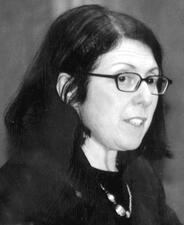Education
Ellen Umansky

Monica Unikel
Mónica Unikel-Fasja is a chronicler of Jewish immigrant stories. She created a dozen guided walking tours in Mexico City and revitalized the oldest Ashkenazi synagogue as a bastion of Jewish culture, designating it a treasure trove of history fully accessible to the general public.
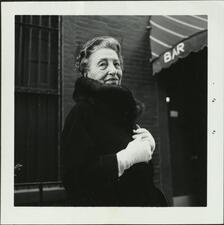
Jean Starr Untermeyer
Poet Jean Starr Untermeyer’s work was first influenced by her connections with writers Sara Teasdale, Amy Lowell, Carl Sandburg, and Robert Frost. Through her many volumes of published poetry and translations, Untermeyer explored her own personal tragedies and defended women’s right to use personal experience in their art.
Rosa Zimmern Van Vort

Victoria Marks
Victoria Marks (b. 1956) is an American dancer, choreographer, professor, and activist. Marks began dancing as a child and later expanded her career as the founder of Victoria Marks Performance Company and a professor at various conservatories around the world. She is also an advocate for mental health and accessibility, collaborating on films that investigate the effects of mental illness and founding the Dancing Disability Lab at UCLA in 2014.
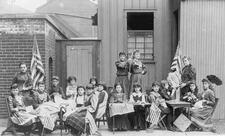
Vocational Training Schools in the United States
Salome Gluecksohn Waelsch
Salome Gluecksohn Waelsch combined embryology and genetics to form a new discipline, developmental genetics, a science that investigates the genetic mechanisms of development. For over sixty years, Waelsch made fundamental discoveries in mammalian development and cancer research.
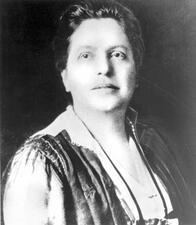
Lillian D. Wald
Guided by her vision of a unified humanity, Lillian D. Wald passionately dedicated herself to bettering the lives and working conditions of immigrants, women, and children. She founded the Henry Street Settlement in New York City and initiated America’s first public-school nursing program. A talented activist and administrator, Wald’s pathbreaking work continues to be memorialized.
Käte Wallach
Käte Wallach was a German lawyer who, due to her being Jewish, was unable to practice law in her country. After migrating to the United States in 1935, Wallach re-enrolled in law school, during which she was enthralled by library science and became a prominent scholar in both fields.
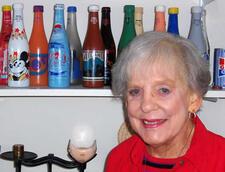
Mollie Wallick

Charlotte Wardi
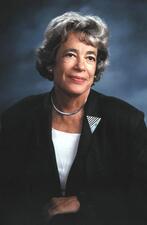
Elga Ruth Wasserman
Chemist Elga Wasserman – a recipient of a Ph.D. in organic chemistry from Harvard in 1949 and a J.D. from Yale in 1976 – is best known for overseeing the entrance of the first coeducational class at Yale College in 1969.
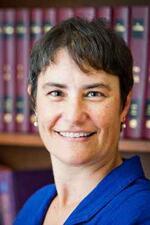
Deborah Waxman

Gertrude Webb
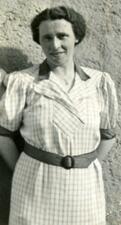
Helen Weil
Helen Weil was a devoted gerontologist in and around Cleveland, Ohio. A German-Jewish refugee herself, in addition to teaching at Western Reserve University, Weil developed thorough social services and programs for elderly Jewish residents at Montefiore Home before going on to found and direct the Schnurmann House.
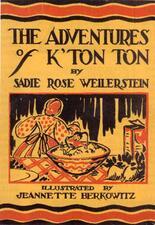
Sadie Rose Weilerstein
An award-winning children’s author and the creator of the beloved Jewish story-book hero K’tonton, Sadie Rose Weilerstein’s stories for Jewish children in English heralded the beginning of a new genre. Weilerstein published the first version of The Adventures of K’tonton in 1935, and by 1964 she had published eleven books.
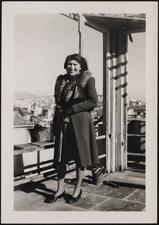
Gladys Davidson Weinberg
Gladys Davidson Weinberg’s pioneering archaeological work on ancient and medieval glass and its manufacture in the Mediterranean world sheds light on the trade and technology of preindustrial societies.
Edith Weiss-Mann
Edith Weiss-Mann’s distinguished career as a concert artist, music journalist, and teacher led to universal acknowledgment of her tremendous influence on new music in Germany during the interwar period. Along with other musicians, Weiss-Mann pioneered the revival of the harpsichord and baroque music in particular.
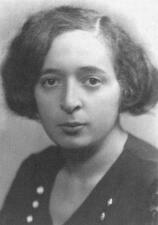
Trude Weiss-Rosmarin
Trude Weiss-Rosmarin made great advances for women’s involvement in Jewish life through the schools she created and her editorship of the Jewish Spectator. A dynamic speaker backed by broad-ranging Jewish scholarship and a prodigious memory, she was a popular lecturer at synagogues and Jewish centers across the United States and a foremost critic of American Jewish life and institutions.
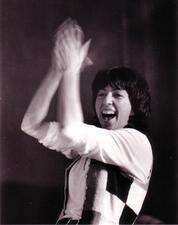
Naomi Weisstein
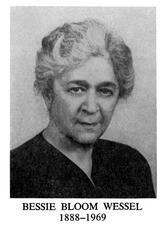
Bessie Bloom Wessel
Bessie Bloom Wessel was unique in her contributions to life in New England, both as an active citizen and as a scholar. She worked with immigrants, served on several committees, and produced significant ethnic studies.
Ruth Whitman
Poet Ruth Whitman was known for her acclaimed translations of Yiddish poetry, as well as for her own autobiographical work. She wrote a series of narrative poems in the voices of women from the past, including Lizzie Borden, Tamsen Donner, Hanna Szenes, and Hatshepsut, the only woman pharaoh in ancient Egypt. In these, she explored problems with sexual identity, love, work, and motherhood.
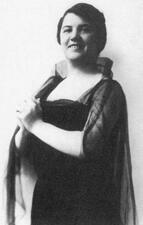
Maria Winetzkaja
Maria Winetzkaja was a rebellious and independent woman whose international opera career spanned twenty years. As a leading mezzo-soprano and excellent dramatic actor, Winetzkaja toured the world with several opera companies, taught voice at the Juilliard School, and raised two sons. Winetzkaja was a powerful force who desired equality for women throughout her life.

Adele Wiseman
Adele Wiseman was one of Canada’s most highly regarded writers of the second half of the twentieth century. She is best known for The Sacrifice (1956) and Crackpot (1974), her two groundbreaking novels that explore Jewish life in Canada. Both are set in Winnipeg’s insular North End, reveal her interest in characters who challenge normative behavior, and affirm Wiseman’s belief in community.

